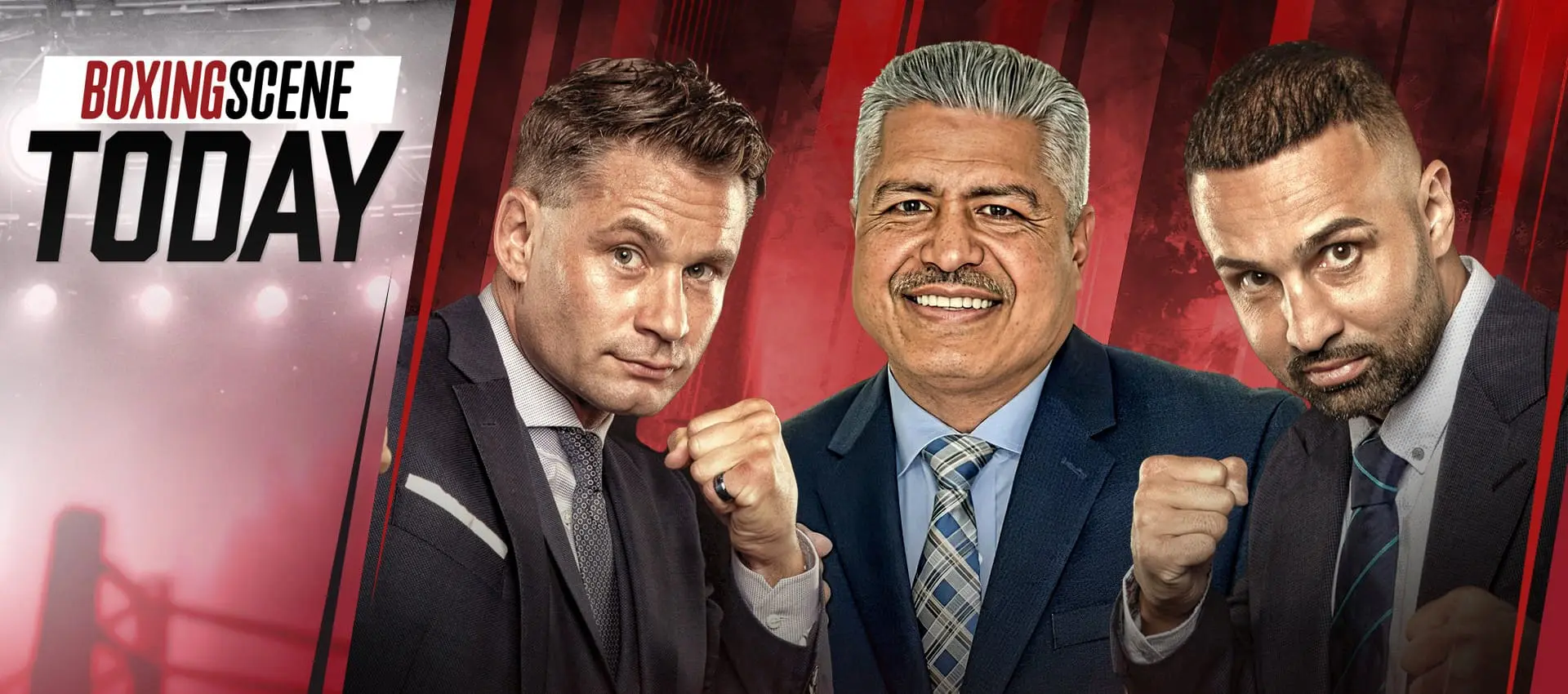'BoxingScene Today'Talk Show
Pauli, Algieri, and Coach Garcia breakdown today's top stories

Upcoming episode - coming soon
Boxing Interviews
Interviews with boxing biggest stars
Pauli, Algieri, and Coach Garcia breakdown today's top stories

Interviews with boxing biggest stars